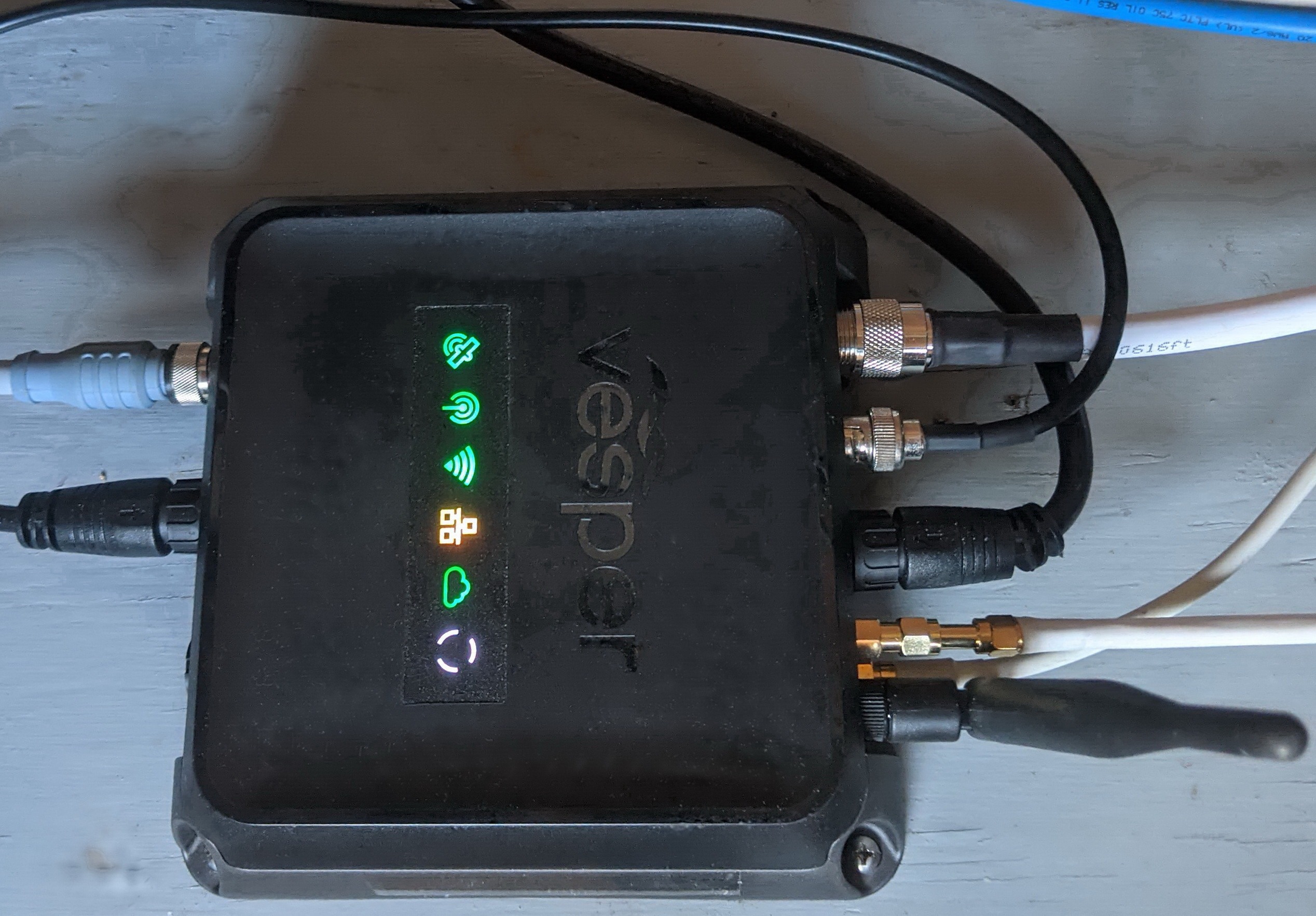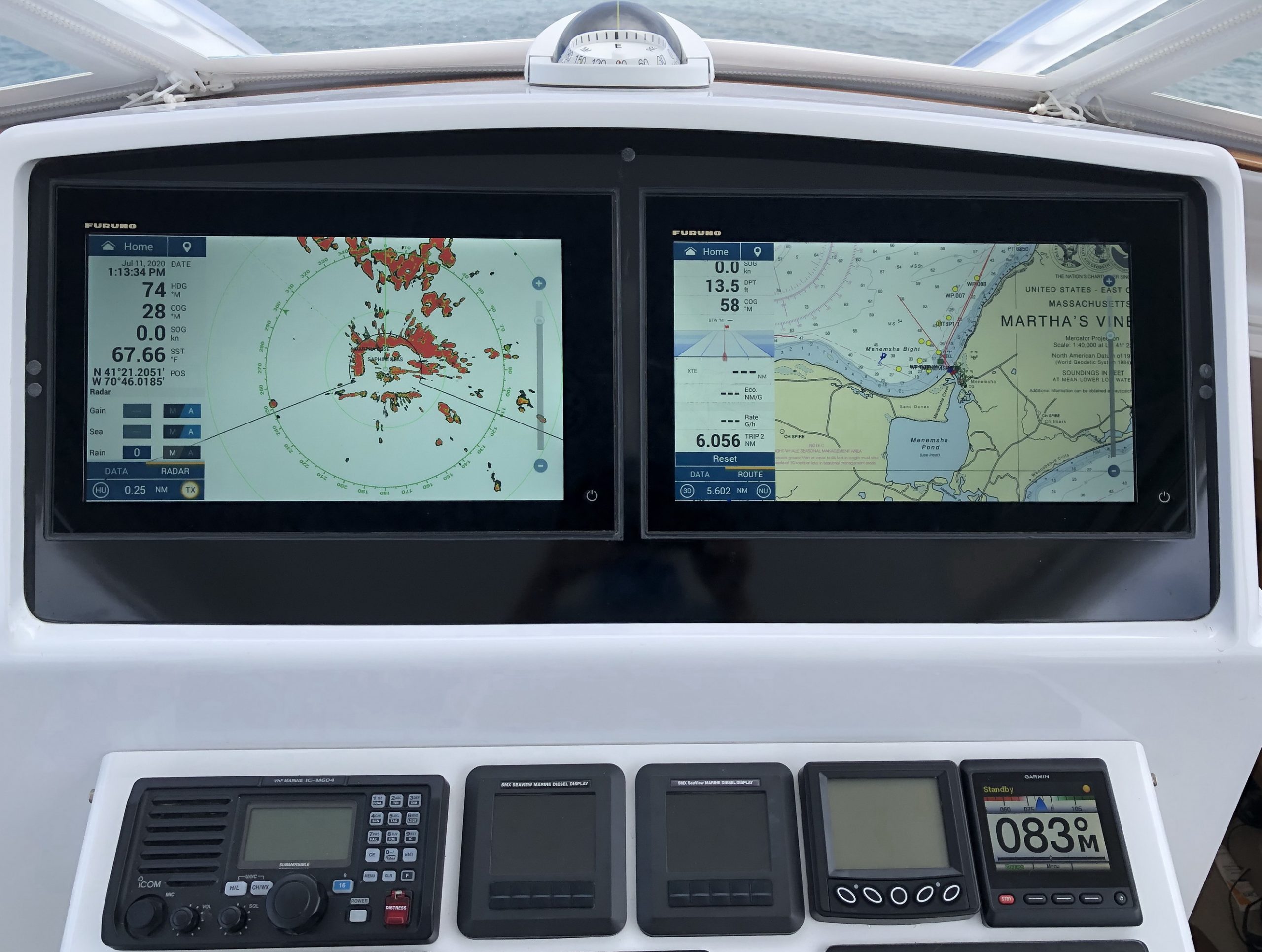FCC & Class B, Maritel’s back!

Arghhhhhh! The FCC’s final approval of the Class B AIS ruling, already troubled, just got a lot more complicated. In the last few days a lawyer for MariTEL, Inc. has spoken directly to the legal aides for three of the five FCC Commissioners, trying to make the case that the Ruling is unfair to MariTEL. You can read the details in his “Notice of Ex Parte Communications” by going to this search form and pasting 04–344 into the top field (Proceeding). This issue goes back years, and was well explained by Fred Pot in Nov., 2003. Panbo commenter “norse” added more valuable background in that last “troubled” Class B entry. But I’m not the only one who thought the MariTEL problem was solved a while back. In fact, a MariTEL executive confirmed that to me a year or so ago.
Apparently now the company feels that the situation has changed. Or maybe just that they can spin some of that “free market” FCC philosophy I wrote about into some cash or wireless spectrum. I don’t claim to understand all the issues MariTEL is suddenly bringing up, but I didn’t miss the reference to the huge 700 MHz auction going on now, i.e. how those big wallet bidders would drop out if they thought the FCC might treat them like poor little MariTEL. Pardon the bitterness, but my sense is that the U.S. Coast Guard, a slew of worthy electronics manufacturers, and a whole lot of safety conscious mariners just got blind tackled right at the goal line.
OK, that’s a pretty lame analogy. This game doesn’t actually have a time limit, and, heck, maybe the FCC Commissioners will disregard MariTEL’s goal line move. But how can any of us move things in the right direction? I’ve contacted BoatUS — hoping they’ll apply their formidable lobbying skills — and know they’re “aware of the situation”. As for my letter to the FCC Commissioners, like others of you, the only response I’ve gotten was a nearly incomprehensible multi-page PDF about how to make comments. I sort of recall that “Ex Parte” was in there, but not an explanation of how to get a sit-down with a Commssioner’s legal aide. Any organizations out there have influential Washington lawyers?













How about briefing the Boat US Government Affairs department on this issue. They seem to have pretty good lobbyists.
Raul
I agree, Raul, BoatUS is very good at lobbying the Government, and I have been in touch. They know about this situation, but the lead person — Chuck Husick, I think — is or was out of the country. No harm if lots of concerned boaters contact BoatUS Government Affairs:
http://www.boatus.com/gov/default.asp
[email protected]
I just sent a note to them.
Raul
What planet are Maritel living on? This beggers belief!
If Maritel had actually made some use of the spectrum they “bought” I might have a bit more sympathy for them, but they didn’t, and they turned up at the IEC AIS meetings and pushed through some pretty tough adjacent channel power tests so that interference wouldn’t be a problem. In the meantime, the US boating public is being denied a valuable safety asset.
I’m just waiting for the first lawsuit against Maritel from a bereaved relative where a life could have been saved by having a Class B AIS….
A few points worth mentioning which may not be obvious: The long-awaited Class B ruling is just to give the same approval waivers as Class A has already been given. So what’s the big deal? Class A is only SOLAS mandated in coastal waters and offshore. But AIS will be big on inland waterways too when Class B arrives. Also, the Coast Guard plans on using satellites to monitor AIS for long range coverage, and that would be easier if the AIS frequencies were consistent.
Ben,
Chuck Husick is well known, and I assume well regarded, in FCC and GMDSS task force circles. He will be a good person to progress this matter with the commissioners.
I guess the real problem is that Maritel have a very valuable asset in the channel licenses, even if of dubious commercial use. They will be reluctant to give this resource up as it will devalue their valuation.
What puzzles the observers outside of the US, is how there is International agreement on the use of 87B and 88B in ITU Appendix 18, yet the US cannot comply.
Thanks for you prompt updates on the situation in the US and your kind comments about the Simrad AI50. Panbo is a very useful and much appreciated resource.
David Sheekey
Navico UK Ltd
Dear Sirs:
I would like too know why you attorney’s are protesting the FCC’s approval of the AIS class B devices, or is this a billing opportunity for your attorney’s? I would sincerely like a straight forward answer.
Gene Harris
P.O. Box 329
Angleton, Texas 77516-0329
MariTEL’s FCC Counsel’s visit to the FCC Commissioner’s office was not to protest the FCC’s approval of the AIS class B devices. In fact, MariTEL has supported the development and deployment of the AIS class B device. The ex parte comments provided to the FCC and referenced on Panbo clearly shows that MariTEL’s reecent conversations with the FCC dealt entirely with the proposed use of channel 87B nationwide. The FCC had previously ruled that one of the maritime VPC channels (87B) would be designated for AIS use in the coastal zone but reserved the decision for nationwide designation until further considerations were made.
The FCC’s rationale for “taking” channel 87B in the coastal zones from MariTEL was based on a pre-auction requirement for MariTEL to provide undesignated frequencies for PAWSS (there was no need for marine domain awareness prior to the 1999 auction. Additionally, the FCC had ruled against the USCG previously on providing channel 87B for AIS). The inland areas in question were not included in the pre-auction requirement for the VPC licensee to provide spectrum. The question before the commission is whether the FCC can “take” channels not previously earmarked for government use from the spectrum designated for the public domain.
MariTEL has in fact urged the FCC to move quickly on making this decision and requested that a suitable replacement frequency be granted not only to MariTEL but the other Inland VPC licensees. The NTIA has an abundant supply of VHF channels that could replace the sprectrum that would be taken from the VPC license holders.
MariTEL agrees with the commenters that the FCC should move quickly to approve the AIS class B devices. The decision on whether channel 87B should be used nationwide for AIS has no bearing on the approval of class B devices.
Dan Smith
MariTEL
[email protected]
Dan, Thank you very much for commenting here at Panbo. Many companies would shy away from such an unruly environment!
Frankly, my understanding of Maritel’s issues with the FCC is quite sketchy, but I have been told by people I trust that your issue with the AIS Ruling does not, as you say, directly involve AIS B.
However, I’ve been told by the same people that Maritel’s issues were resolved by ruling some time ago and that, while the FCC is unlikely to change its mind, your lobbying at this late date is likely to slow down the approval process.
So I wish Maritel had not sent a lawyer to the FCC. I’ll add that I also think the public, as represented by our government, should have substantial rights to “take back” radio spectrum, especially when that spectrum is critical to citizen safety and national security. This is such a case.
Thank you to Dan Smith for clarifying the situation regarding the ex parte comments to the FCC. In particular it is now clear to me that Maritel’s concerns relate to the use away from coastal/international waters and therefore my clumsy comment about the value of the channels is not appropriate.
My real concern is to get the FCC to make a decision so that US boat owners have access to the excellent products and safety benefits that AIS can offer.
David Sheekey
As I have posted elsewhere, “The advantages of AIS become more apparent in areas where hills and buildings block the use of radar to detect other water-borne traffic. In fact, the greatest use of this life saving technology may prove to be on the nation’s navigable inland lakes and rivers. Where a collision involving a cargo of hazardous materials would be a calamity at sea, it could become an unimaginable horror in the middle of a riverside city. To a lesser peril, a more likely spill of toxic materials (the result of mixing two relatively innocuous cargoes,) could not be contained, and would be swept downstream, spreading environmental devastation for a thousand miles. To allow this to happen by acceding to the demands of a single injured party is unconscionable. I know what the NTSB would tell the American Public.
Clearly, AIS should be implemented on all navigable inland waters. Further, AIS B should be approved for the same reasons, as the vessels at risk on these waters are not required to use, and may not reasonably afford AIS A.
The FCC’s decision to auction spectrum reserved by international agreement was ill-advised. I suggest that the Commission refund the amount of the bid, with interest, and pay for their own mistakes. It should come from their budget, to be reimbursed by Congress after appropriate public executions. But in the mean time, I want my AIS B!